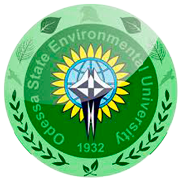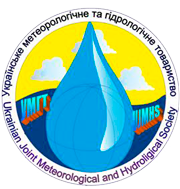Radiation-and-temperature resources of the steppe zone in Ukraine under the climate change conditions in the period of up to 2050
Abstract
Indices of the radiation-and-temperature regime in the Steppe zone of Ukraine in the period of 1986 through 2005, as compared to the expected changes in these indices, calculated in accordance with the two climate change scenarios, RCP4.5 and RCP8.5, for the period of up to 2050, are under consideration in the paper. RCP4.5 is a scenario of stabilization of greenhouse gas emissions into the atmosphere, while RCP8.5 is the one of very high greenhouse gas emissions. To characterize the radiation and thermal resources in the Steppe zone of Ukraine in the period of 1986 through 2005 (the basic period), and the change in the period of 2021 through 2050 calculations of average long-term values for the first group of environmental factors were performed: the duration of daytime, the total daily solar radiation, the intensity of photosynthetically active radiation (PAR), the accumulated PAR, the radiation balance of the vegetation cover, and the temperature regime. The following principal agro-climatic characteristics of the temperature regime were considered: dates of stable rise of the air temperature above 0, 5, 10, 15 °C in spring and autumn, duration of the period with air temperatures above 0, 5, 10, 15 °C, the accumulated positive air temperatures for the period with air temperatures above 0, 5, 10, 15 °C, the average air temperature in January and July, and the amplitude.
It is pointed out that in the period of up to 2050, according to the calculations in both scenarios, increased indices of the radiation-and-temperature regime will be observed. The values of the radiation regime parameters will predominantly increase in late summer and early autumn. As a result of the inflow of increased accumulated solar radiation, the accumulated temperatures in the period with air temperatures above 5 °C will also rise. The expected increase in the accumulated temperatures will nevertheless not exceed 200 °C. A rise in the total temperature will contribute to better heat supply for the crops.
References
2. Stepanenko S. M., Pol'ovyy A. M. (Eds). Klimatychni zminy ta yikh vplyv na sfery ekonomiky Ukrayiny [Climate change and its impact on sectors of the economy in Ukraine]. Odessa: «TES» Publ., 2015. 520 p.
3. Budyko M. I. Izrayel Yu. A. (Eds). Antropogennye izmeneniya klimata [Anthropogenic climate change]. Leningrad: Gidrometeoizdat, 1987. 405 p.
4. Voloshchuk V. M. Basic regularities of current global warming on the territory of Ukraine and its environmental impacts. Ukrayina ta hlobal'ni protsesy: heohrafichnyy vymir [Ukraine and global processes: the geographical dimension]. Kyyiv – Lutsk, 1998, vol. 3, pp. 202 - 208.
5. Kotlyakov V. M. (Ed.). Global'nye i regional'nye izmeneniya klimata i ikh prirodnye i sotsial'noekonomicheskie posledstviya [Global and regional climate change and its environmental and socio-economic impacts]. Moscow: «Geos», 2000. 262 p.
6. Hrebenyuk N., Korzh T., Yatsenko А. Vodne hospodarstvo Ukrayiny – Water industry of Ukraine, 2002, no. 5-6, pp. 56-62.
7. Tooming Kh. G. Solnechnaya radiatsiya i formirovanie urozhaya [Solar radiation and the crop formation]. Leningrad: Gidrometeoizdat, 1977. 200 p.
8. Budagovskiy A. I., Rоss Yu. K. Fundamentals of quantitative theory of photosynthetic activity of crops. V rnige: Fotosinteziruyushchie sistemy vysokoy produktivnosti [In book: Photosynthetic high productivity system]. Moscow: Nauka, 1966. pp. 51 - 58.
9. Polevoy A. N. Prikladnoye modelirovaniye i prognozirovanie produktivnosti posevov [Application modeling and forecasting of crop productivity]. Leningrad: Gidrometeoizdat, 1988. 318 p.
10. Pol'ovyy A. M. Sil's'kohospodars'ka meteorolohiya [Agricultural Meteorology]. Odessa: «TES» Publ., 2012. 628 p.

This work is licensed under a Creative Commons Attribution 4.0 International License.






